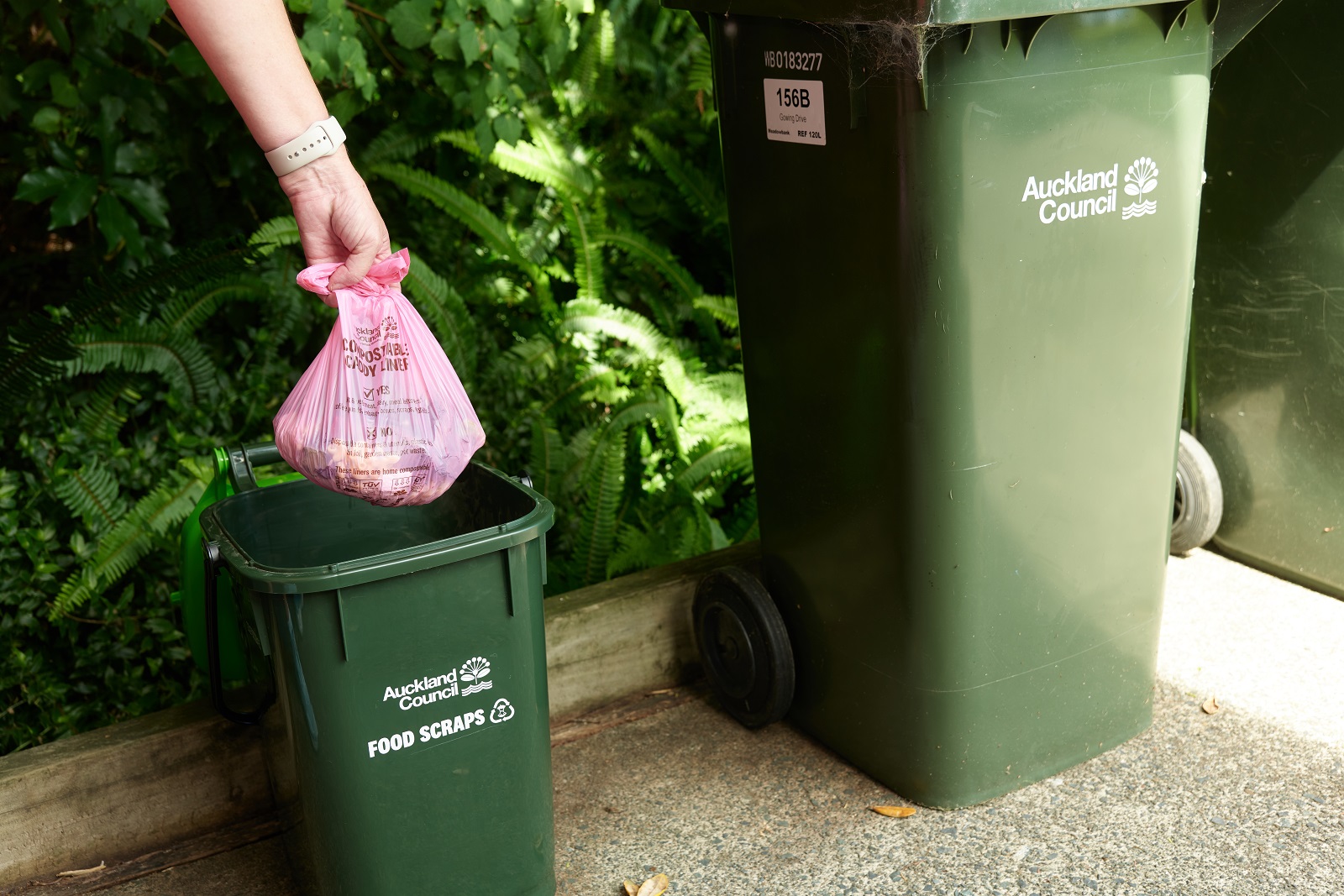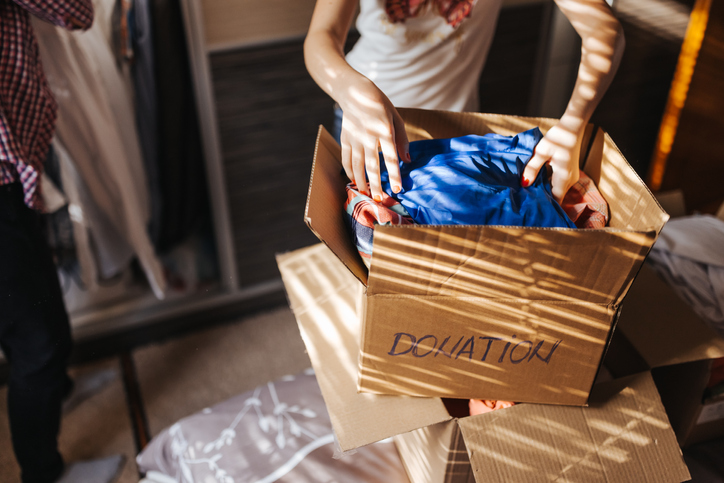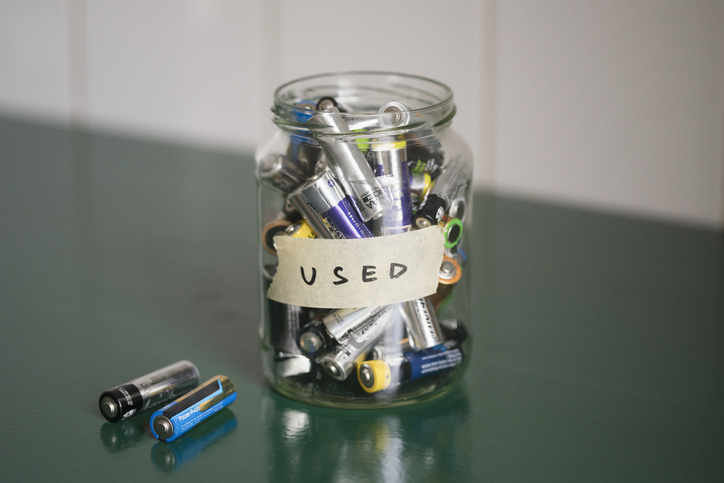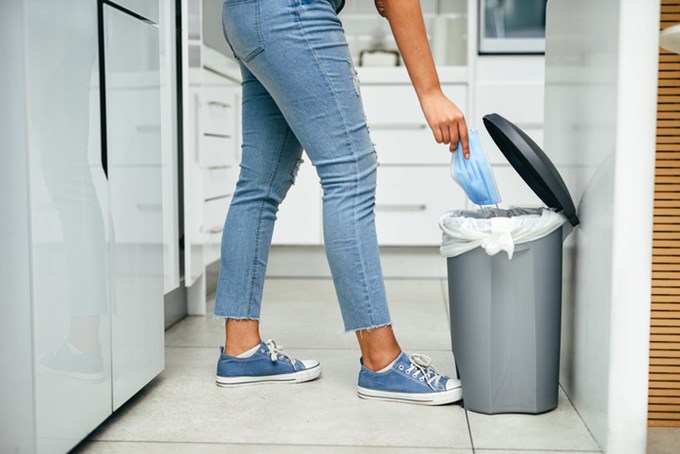So you’re keen to recycle as much as possible? Reducing landfill is a great cause your whole household can get behind. However, it’s important to know what can be recycled in your kerbside bins and what needs to be taken elsewhere – or put straight in the rubbish.
From the dangerous to the downright confusing, here are six types of items that shouldn’t be in your recycling bin.
1. Food Waste
Keeping food scraps out of landfill is a great initiative, but they don’t belong in recycling bins.
Instead, put food waste into the food scraps bin. They are collected and turned into clean energy and liquid fertiliser. If you don’t have a food scraps bin yet, check the rollout schedule to see when you can expect yours.
The other option is to compost your food waste at home. Check out the Compost Collective for tips on how to get started

2. Soft Plastics packaging
These can’t go in your recycling bin, but you’re right in thinking they can be recycled.
Soft plastics – including plastic bags, courier bags and chip packets – can be dropped off at your local supermarket or retailers that are part of the Soft Plastics Recycling Scheme.
You can also reuse your plastic bags. They come in handy for giving away your surplus of feijoas, or as freezer bags and bin liners.
3. Clothing and textiles
Cleaning out your wardrobe is great, but the recycling bin isn’t the right destination for clothes that aren’t sparking joy.
If you have clothes in good condition that you no longer want or need, donate them to an op shop, put them in a clothing bin or sell them online. Why not try taking part in a clothing exchange? It’s a fun way to refresh your wardrobe.
Anything that is too worn out to be donated can be taken to a community recycling centre for textile recycling.
You can also take other textiles like old door mats, rugs or bits of carpet to a community recycling centre or transfer station, or include them in your inorganic collection.

4. Hazardous waste
Hazardous waste includes some things that obviously don't go in the recycling bin – like toxic chemicals and dead animals – but there are some items that might be easier to mix up. For example, did you know fireworks count as explosives and are therefore hazardous waste? Make sure you don’t put these in your recycling bin.
Another confusing item can be gas bottles or canisters from camping stoves. They can be recycled, but not through your kerbside recycling service. Barbecue gas bottles can be dropped off at a community recycling centre or MataGas outlet as long as they’re completely empty. Camping stove canisters can be taken to a community recycling centre as well – Check locations here.
5. Electronics
Batteries can’t go in your recycling bin or your regular rubbish bin. Gather up single-use batteries, like AA or AAA, and lithium batteries, and drop them off at your local Bunnings or community recycling centre.
For other electronic waste – like cords and chargers, or larger devices like TVs and computers – you can drop them off to an e-waste recycler.

6. Medical Waste
Many medical waste items can’t be recycled. Rapid antigen tests (RATs), face masks and the plastic casing of inhalers, for example, go in the rubbish bin.
Some items, like pill bottles, can be recycled, but only if they are empty and clean and larger than 50mmx50mm.
Unused medicines can’t be put in the rubbish or recycling bin. It’s best to look online to see exactly what can be recycled.
Think you’ve got a handle on what goes in your recycling bin and what stays out? Test your knowledge with a Recycle Right quiz
Challenge your family to see who can get the highest score.


